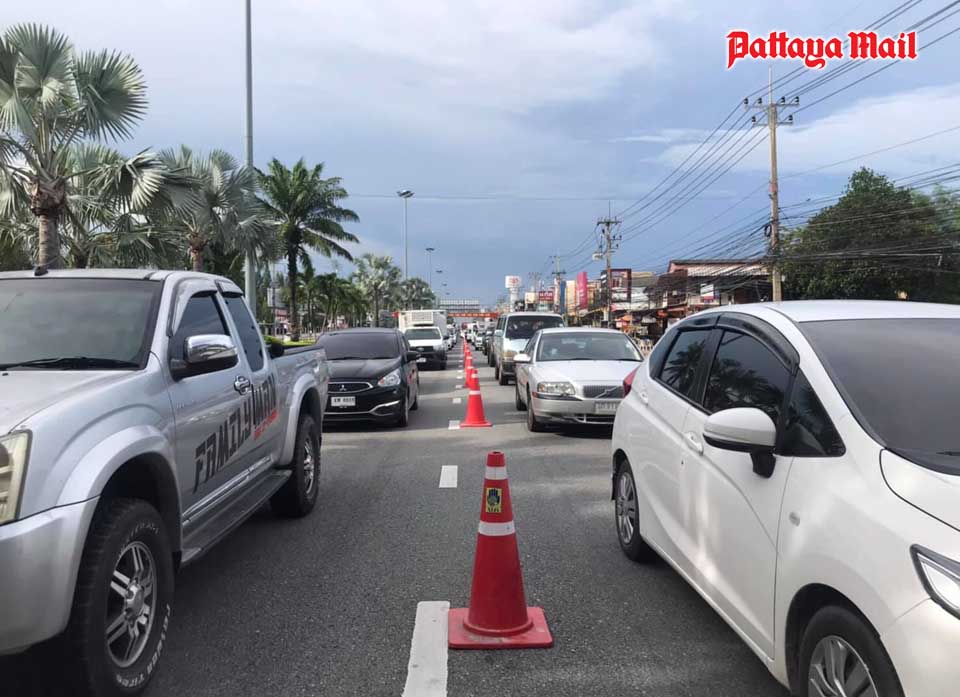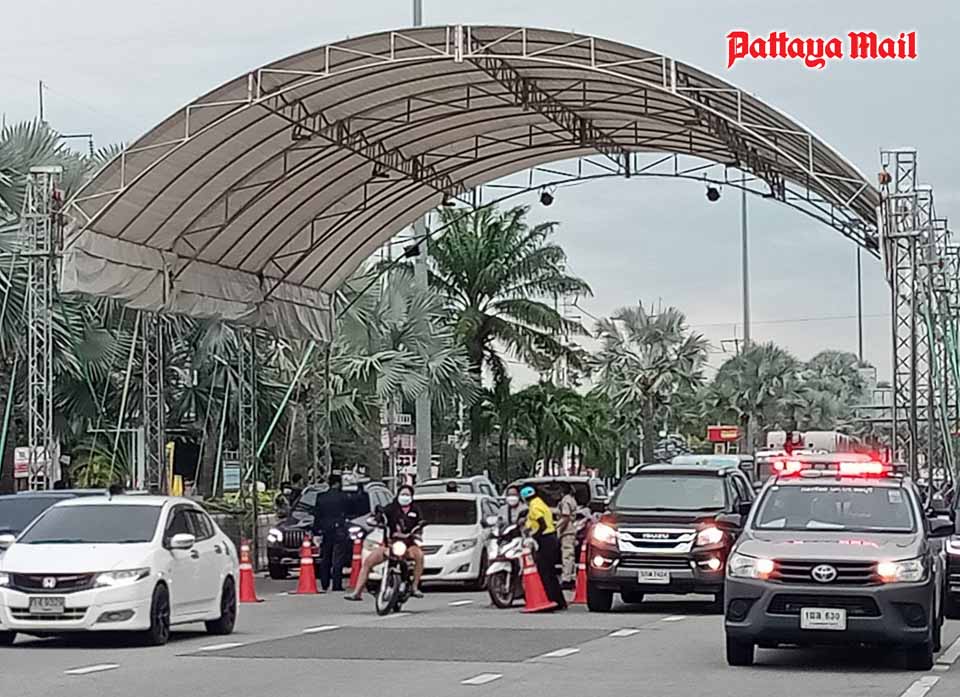
After stubbornly keeping Pattaya open to all comers even as other provinces imposed quarantines on tourists, Chonburi has relented and now will require visitors to self-isolate for 14 days.
Travelers were informed of the new quarantine requirements July 13 as soldiers, police and volunteers manned six checkpoints at provincial borders, including Sukhumvit Road at the Banglamung Police Station. Other checkpoints are set up checkpoints in five districts in Chonburi, including Muang, Sattahip, Phanat Nikhom and Ban Bung districts.
Gov. Pakarathorn Thienchai, flanked by Banglamung District Chief Wuttisak Singhadecho and Pattaya Deputy Mayor Banlue Kullavanijaya inspected the Sukhumvit Soi 2 checkpoint July 13, the first night they became operational from 9 p.m. to 4 a.m.
The governor acknowledged that the coronavirus situation is worsening in Chonburi and stricter measures need to be imposed, including imposing quarantines in Pattaya, which had welcomed anyone from any provinces – deep red, red, yellow, orange or green – in order to generate tourism revenue.
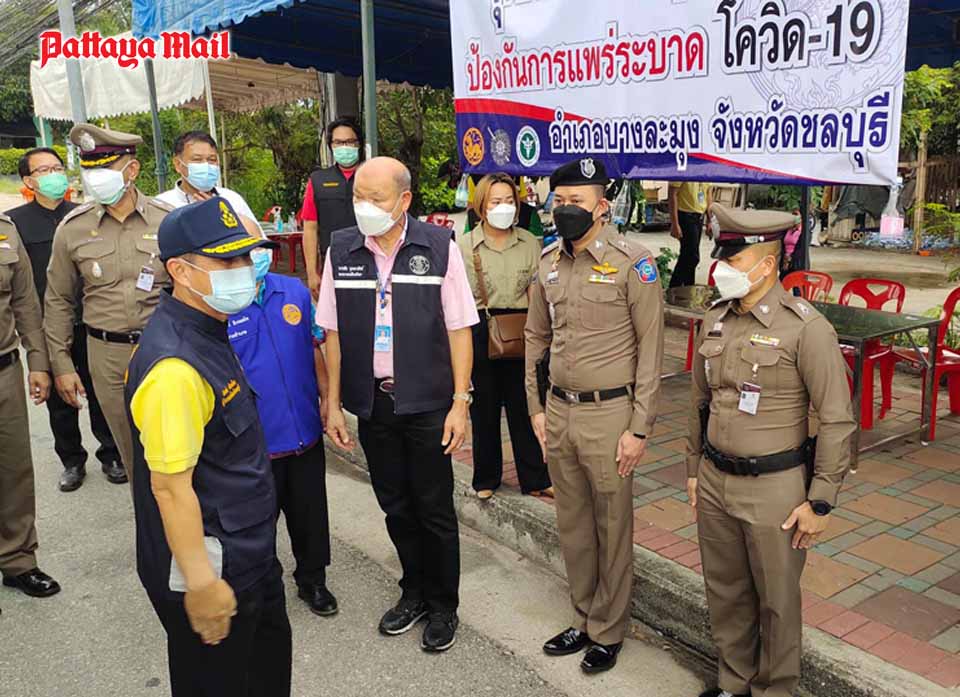
But Chonburi reported 523 new Covid-19 cases on Thursday, 93 of which were in Banglamung District, which includes Pattaya. It was the second straight day of 500-plus cases in the province, although Pattaya’s number fell from Wednesday’s 128.
People are not being taken from checkpoints to quarantine – random checks of passenger cars and trucks only are being done – but subdistrict mayors and village headmen are tasked with informing arrivals of the need to self-isolate for two weeks and not leave their accommodations.
Migrant workers, as usual, are getting it worse. Continuing the incessant scapegoating of factory, construction and market workers, Pakarathorn said all factory workers are confined to their employer’s facility for a month if a case is found there.
Migrant workers have made up a tiny share of Chonburi’s cases, with Thais spreading the disease through market interaction, shopping mall visits and family get-togethers. But the poorest in society from Cambodia, Laos and Myanmar are being caged like animals with little attention paid to their well-being during forced confinement.
Pakarathorn said the factories closed will serve as field hospitals, with 2,500 beds now available for those with no or minor symptoms.
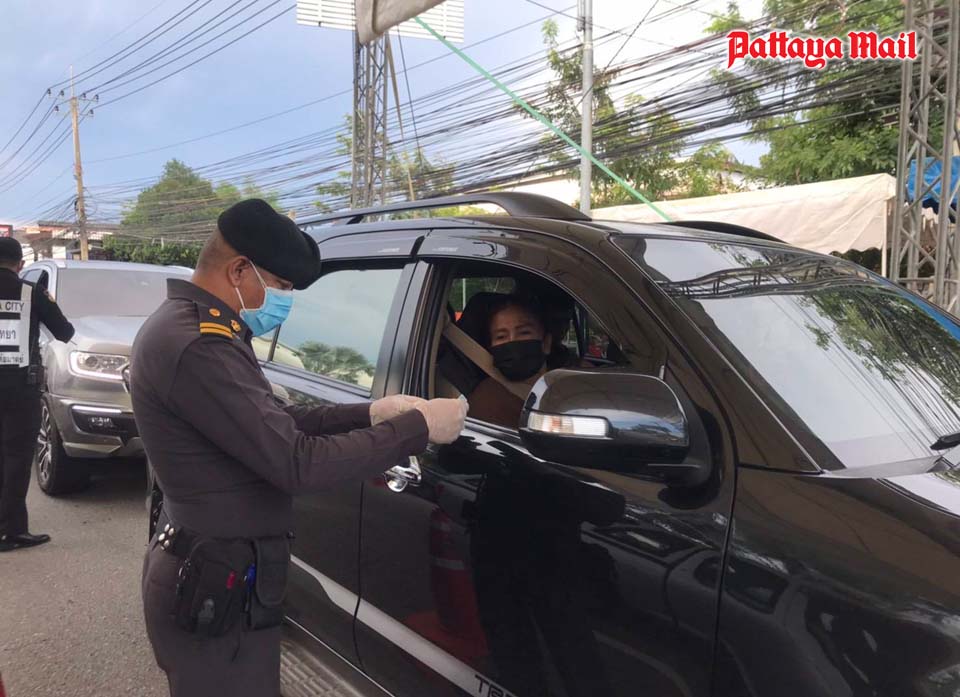
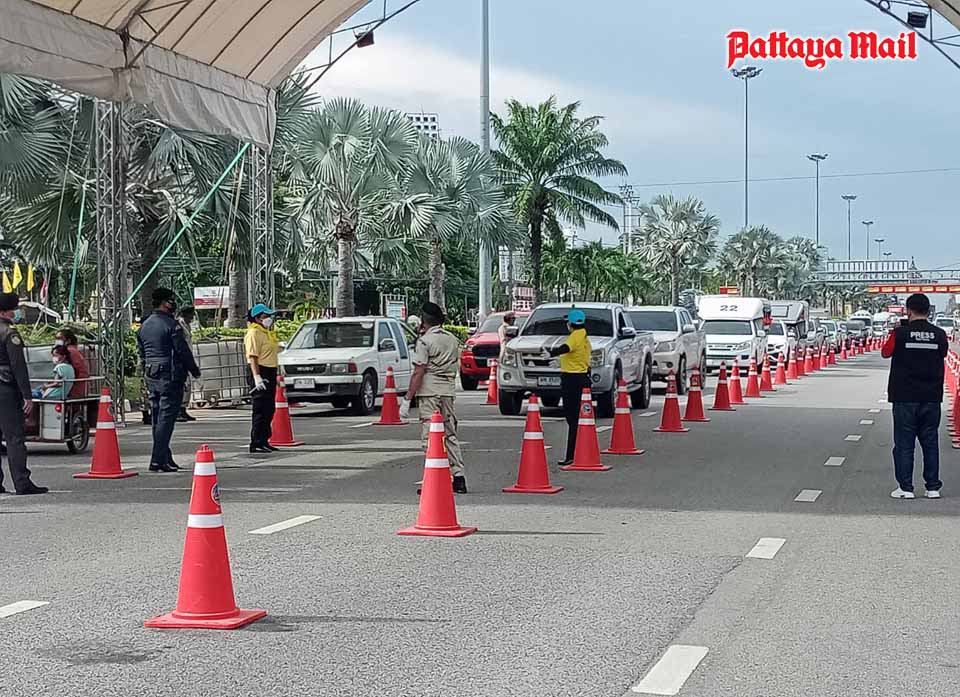
 |
 |
 |



